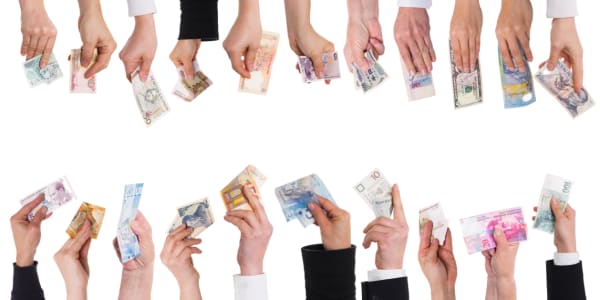A celebration of failure: The phrase means not being afraid to fail and may be just what Asia needs to cultivate an entrepreneurial spirit.
"Corporate culture in Japan and China is still struggling with a celebration of failure," said David Frigstad, the chairman of Frost & Sullivan, a consulting firm to Fortune 1000 clients around the world.
"Governments all over the world come to us and say how do we get this Silicon Valley thing to work and one thing that's always missing is the celebration of failure, not being afraid to fail," he told CNBC during a trip to Asia earlier this month.
Read More Why these executives abandoned the corner office
"We have this term in Silicon Valley called a serial entrepreneur – which really means 'I failed a whole bunch of times and I'm still trying'," he added.
Jacqueline Low, the chief operating officer at Janus Corporate Solutions, a corporate services firm in Singapore which has some experience of working with new start-ups, said Asia needs to cultivate a more accepting mindset towards failure if entrepreneurism is to grow.
Read MoreSelf-made billionaire: The how-to guide
"Asians have a strong 'saving-face' mentality where they're generally unforgiving of failures, as it is perceived that failures mean weakness," she said. "Therefore, there are unfair expectations on entrepreneurs and failed entrepreneurs are looked down upon. For fear of failure so many great ideas are put to sleep before seeing a streak of light."
"An example of celebrating failure can be seen in Finland, where there's a national day to celebrate failure, just to drive home the need for embracing failure in order to succeed," Low added.
That's not to say that Asia doesn't have its own batch of entrepreneurs to match the likes of Facebook founder Mark Zuckerberg or Britain's Richard Branson. One who's been in the news lately is Jack Ma, the founder of Chinese e-commerce giant Alibaba, which is expected to list its shares in New York soon.
Read More Alibaba valued at up to $250 billion in grey market
Visionary change
Still, analysts say Asia still has a long way to go in developing the kind of entrepreneurism that involves visionary change.
"I believe it is more about Asian society's non-acceptance of failure that is a hindrance to young people going down the entrepreneur route in larger numbers," Jay Jhaveri, head of business development for Asia, at research firm Wealth-X, with reference to a 'celebration of failure.'
"In some Asian countries, being declared a bankrupt is seen as the ultimate business failing. The fear of failure coupled with risk aversion keeps entrepreneurship as a lesser choice for the best and the brightest," he added.
Asia is home to two of the world's three biggest economies –China and Japan – not to mention a host of fast-growing ones such as Indonesia. It's seen as ripe by many analysts for new start-ups and ventures to take advantage of growing affluence in the region.
Read MorePower of people – Crowdfunding gains traction in Asia
The International Monetary Fund (IMF) expects developing Asian economies to grow 6.7 percent this year. In contrast, the IMF forecasts the U.S. economy to expand 2.8 percent and the euro area to grow just 1 percent.
Cultural barriers have not stopped Western entrepreneurs pushing new business ventures against a backdrop of a dynamic economic growth. A gamble by billionaire Australian businessman James Packer, for instance, on casinos in Macau, the Philippines and Sri Lanka has seen his fortune jump by $2.1 billion in two years, Forbes Magazine said in January.
Time for change?
Analysts say cultural differences may encourage some Asian entrepreneurs to test their ideas or gain experience and confidence abroad before bringing them home, while others say starting out overseas first is key.
Joseph Chen, chief executive of Renren, a Chinese social networking company, told a tech summit in Tokyo this month that internet companies across Asia should temper their ambitions.
"For social networks, if you are not started in the U.S., your options for global expansion are limited," the Wall Street Journal reported him as saying.
Read More China's bespoke demand spawns wave of startups
Other experts see signs of change taking hold.
"Although going by the rate of company registration we may conclude Singaporeans rank high in entrepreneurship, innovation is lacking. The stigma of failure prevents entrepreneurs from trying new ideas so they continue to play safe. But there appears to be small changes setting in, with the much younger entrepreneurs coming in," said Low at Janus.
She adds that in the case of Singapore, there are specific programs such as NUS (National University of Singapore) Enterprise to provide mentoring and funding support for entrepreneurs.
Jhaveri at Wealth-X also sees some anecdotal evidence to suggest entrepreneurship is becoming a career option.
"There may be more people (than in the last 5-10 years) prepared to invest in entrepreneurship with their wallets (i.e. invest in start-ups) than with their skills and time (i.e. starting a start-up)," he said.





